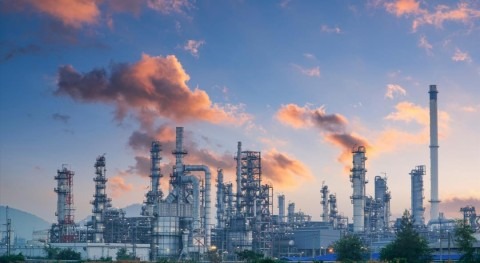Digital water innovation often shines the spotlight on water utilities as vital suppliers, yet the relationship that industries share with this essential resource must not be overlooked. Industries rely on water as a crucial ingredient in manufacturing processes, with the ability to profoundly affect both the quantity and quality of water available in an area. However, progress in digital innovation within this sector has been sluggish. Companies grapple with the complexity of conceptualizing and scaling solutions to address the intricate and diverse issues surrounding industrial water. Despite challenges, the pressing need for innovation to address complex water-related issues in industries, alongside managing impacts on production, society, and the environment, is imperative.
In the realm of industry, the interconnection of water and production calls for a shift. Unlike utilities where water is the ultimate output, industries perceive water as a pivotal intermediary. This shift introduces a new challenge — digital innovations crafted for utilities often fall short of aligning with industrial needs. To effectively harness digital water innovation for industries, we must tailor our approach to suit production processes.
Enter the concept of ecosystem models. The intricate processes in industries necessitate a departure from linear water management in favor of a holistic ecosystem perspective. Industrial water reuse stands out as a prime example of this shift.
As water scarcity concerns intensify, industries face a crucial decision. Embracing water reuse emerges as a solution that enhances water security, maintains production, and lessens the strain on water resources. The success of this strategy relies on the availability of a consistent quality of water. However, the challenge is compounded by the variable concentration of contaminants often observed in industrial water. Imagine a pulp and paper mill — a facility's ability to reuse water depends on its capacity to uphold water quality within its internal recycling system. When the quality declines, the mill must tap into external water sources, underscoring the importance of managing water quality within an industrial setting. Here, the role of digital technologies becomes paramount.
Embracing water reuse emerges as a solution that enhances water security, maintains production, and lessens the strain on water resources
Machine Learning (ML) and Artificial Intelligence (AI) step onto the stage, equipped with algorithms that oversee the process water cycle. These vigilant tools identify issues, conserve water, enhance treatment processes, and prevent resource wastage. Their role ensures that water reuse is optimized to deliver maximum water benefits.
Expanding on the ecosystem approach, the integration of Application Programming Interfaces (APIs) carries significant potential. These interfaces facilitate the connection between production processes and water management. Industries, often constrained by single water plans, now possess the means to build a system where water plays a pivotal role in the manufacturing narrative rather than being an afterthought. This approach offers a potential solution to the pressing water challenges we confront.
The need for industries to take control of their water becomes apparent when we consider the escalating water crisis. South Africa serves as a prime example, showcasing how limited water availability can directly affect industrial production and economic well-being. Sectors like food and beverage must make essential changes to guarantee sustainability and provide for growing populations. This challenge isn't confined to just the industrial realm; it's a societal imperative, recognizing the interconnected nature of populations and economies.
In summation, the stage is set for a digital revolution that will reshape how industries manage water. Given the distinctive nature of this sector, departing from conventional utility strategies in favor of embracing ecosystem models is essential. Water reuse serves as the immediate testing ground for this transformation, driven by the harmonious interplay of ML, AI, and vigilant oversight of the water cycle.





